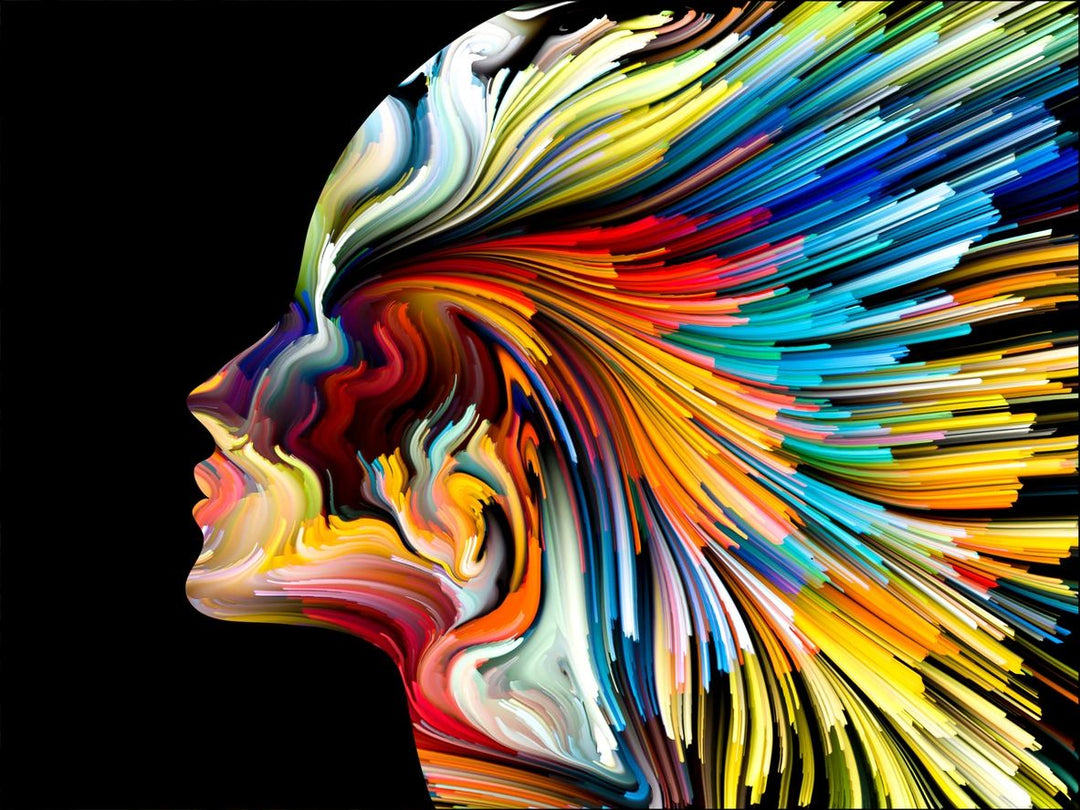 Blue Light effects on sleep
Blue Light effects on sleepWorking Or Learning From Home During COVID-19? Make Sure To Avoid Blue Light Before Bed!
Written by Slumber Yard Team
Last Updated: January 25, 2021
COVID-19 has brought about big changes to our everyday lives. Even before the pandemic, Americans spent more than 10 hours a day looking at screens. Now, with children attending school online and adults both working and looking for entertainment from their electronics, there’s been a significant increase in the use of technology on a daily basis.
That increase in screen time can have an impact on our ability to rest. Our sleep cycles were already disrupted by pandemic-related anxiety and stress. In fact, neurologists have discovered an increased level of sleep disorders, called “COVID-Somnia,” brought about by stress over the virus. Now, the electronics we rely on during our day-to-day may also be poorly affecting your rest.
The blue light effects on sleep that emanates from our devices, TV, and computers can disrupt our circadian rhythm — the body’s biological alarm clock — which tells us when to sleep and when to wake up. As a result, you may have trouble falling asleep at night, causing you even more struggle when you have to wake up in the morning.
Blue Light effects on sleep
That lack of sleep can even lead to physical and mental health problems later down the line. If you don’t get enough rest at night, you become more likely to experience heart disease, kidney disease, diabetes, depression, and more. Sleep also boosts your immune system, which is important in avoiding viral illnesses such as COVID-19.
In short, there’s no medicine as powerful as a good night’s sleep. And in a COVID-inflicted world, doesn’t it make sense to take advantage of anything that makes you less likely to get sick? All the more reason to take a closer look at your use of blue lights in the evening before you go to sleep.
Table of Contents
- Why Does Our Sleep Matter So Much?
- What is Blue Light and Why Does It Hurt Your Sleep Habits?
- Common Blue Light Sources
- What Are The Best Ways To Manage Blue Light Exposure Before Bed?
- What Are The Experts Saying?
- The Bottom Line
Why Does Our Sleep Matter So Much?
If you’ve ever tried to function at work after a sleepless night, you know how important it is to get rest so that you’re able to study, work, and carry on the tasks of an average day. But getting inadequate sleep does more than leaving you feeling loopy — it can also make you sick.
A Mayo Clinic report says that sleep allows your immune system to release proteins, called cytokines, which fight infectious diseases such as the common cold, along with viruses such as COVID-19. But there’s more: continued lack of sleep leads to a host of ailments, from obesity to cardiovascular disease, that can require extensive medical intervention.
How much sleep is good? For children, ten hours is about right; teens need almost as much. Adults can manage, in general, eight hours a night. But everyone’s biological clock — their circadian rhythm — is unique, so while six hours may work for one person, it might leave another feeling exhausted the next day.
There are multiple ways to ensure that you’ll get a good night’s sleep after you shut out the lights. One big factor is your mattress, pillow, and bedding. Investing in a quality mattress is a wise use of your money that will be with you for years. Avoiding food and drink (especially caffeinated drinks) late in the day is also helpful.
And yes, turning off your electronics well before you go to bed can make a big difference in the quality of your sleep.
What is Blue Light and Why Does It Hurt Your Sleep Habits?
Blue Light effects on sleep
So what is blue light? All the light we see arrives at our eyes via wavelengths, and every color of light has a different wavelength. Blue light has a short wavelength, and it’s the predominant color of the light from electronic screens.
Light affects your circadian rhythm, which is why you tend to be more alert and active during daylight hours than at night. The light you experience from the sun and other sources tell your body to prepare for activity and be alert. But blue light is particularly influential because it blocks a hormone that your body makes called melatonin.
Melatonin tells the body when it’s time to go to sleep and triggers your bodily functions to slow down to facilitate a good night’s sleep. When you are exposed to blue light waves, melatonin is not produced, so your body isn’t getting that vital message about slowing down and getting ready for sleep.
The screens on your electronics — computers, cell phones, gaming tablets, and more — may not appear to be blue, but the light they produce is predominantly made up of shorter blue wavelengths. If you’re still surfing the net on your smartphone long after you’ve gotten into bed, you’re telling your body to rise and shine, rather than slow down and rest.
Blue light does have its good side. Since it makes you feel more alert, blue light therapy is used for those suffering from unexplained fatigue or Seasonal Affective Disorder (SAD), a type of depression. It may help those with memory loss and is believed to improve cognitive function.
Common Blue Light Sources
In general, you’ll feel more alert and functional during the day if you receive enough blue light from sunlight and other sources. But that same effect works against you at night. And you may be experiencing more blue light waves than you realize:
- Sunlight is the biggest provider of blue light. In fact, those who work at night and sleep during sunlight hours may suffer from a condition called shift work sleep disorder, which can cause either excessive sleepiness or sleeplessness.
- Computers: with an increased population working or studying at home, exposure to blue light from the monitors at all hours has increased tremendously. In fact, Microsoft officials estimate a 75% increase in time spent on Windows 10 over last year at this time. That’s a lot of blue light.
- Smartphones are mostly likely to be the source of blue light that we take into the bedroom with us. Exposing yourself to the screen’s blue light so close to bedtime confuses your body’s sleep-wake cycle and leaves you feeling alert when you should instead be relaxing into sleep.
- Gaming systems: numerous studies have indicated that gaming too close to bedtime will result in disrupted or poor sleep patterns. For young people who are now spending significant school time online in addition to playing computer games after school, the effect is even more pronounced.
- Fluorescent and LED light bulbs: Although light bulbs don’t have as large an impact on sleep as some of our other potential causes, they do include blue light waves. It can be useful to avoid harsh overhead lights in the evening and rely instead on shaded or indirect lighting to minimize them.
What Are The Best Ways To Manage Blue Light Exposure Before Bed?
How can you minimize blue light exposure to allow yourself to benefit from sleep? It’s easy to say “eliminate all electronics,” but that’s not always practical. A better solution is to think of yourself driving down an exit ramp on the highway. Just as you would slowly de-accelerate your car as you leave the highway, so should you wind down your use of electronics as you get closer to bedtime.

What Are The Experts Saying?
Katherine Hall, a sleep coach at Somnus Sleep Therapy, suggests some cost-effective accommodations you can make to limit the number of blue light waves that reach you. “If you must regularly interact with screens, amber-tinted glasses or screen filters are a great way to avoid blue light exposure. Many laptops, smartphones, and tablets offer a shield option that filters out the blue light from the device. The result is a screen that relies more heavily on red wavelengths that are less energizing to the retina. This feature is known as ‘night mode’ on Apple devices.”
If you can’t sleep, says Dan Ford, founder and sleep psychologist at The Better Sleep Clinic, don’t fight it: instead, use the time constructively. “Don’t get into a struggle with sleep at night. If you can’t sleep you won’t be able to force yourself to sleep. Don’t lie there, go do something else: read a book, do gentle yoga, meditate — all those things you never found time to do during the day.”
The ability to get a good night’s sleep is impacted by what you do for the rest of the day, says W. Christopher Winter, M.D., President of Charlottesville Neurology and Sleep Medicine. “Take time out to practice mindfulness, yoga, meditation, gratitude, prayer every day. Establish a solid routine, even if you are socially isolating. (Eat breakfast at 8, walk the dog at 9, Zoom meetings from 10-3, exercise at 4, etc.) If your mood is poor, seek help. Virtual doctor visits are more available than ever.”
The Bottom Line
Maintaining a healthy lifestyle during a pandemic can be a challenge, but with a few simple rules and some understanding of how your circadian rhythms work, you can ensure that you’ll get a good night’s sleep. That, in turn, will keep you healthy and able to function, no matter how much of your daily time is spent looking at your electronics. Even small things, like following our bedtime schedule suggestions, are steps in the right direction that cost you little but pay big dividends.




Leave a comment